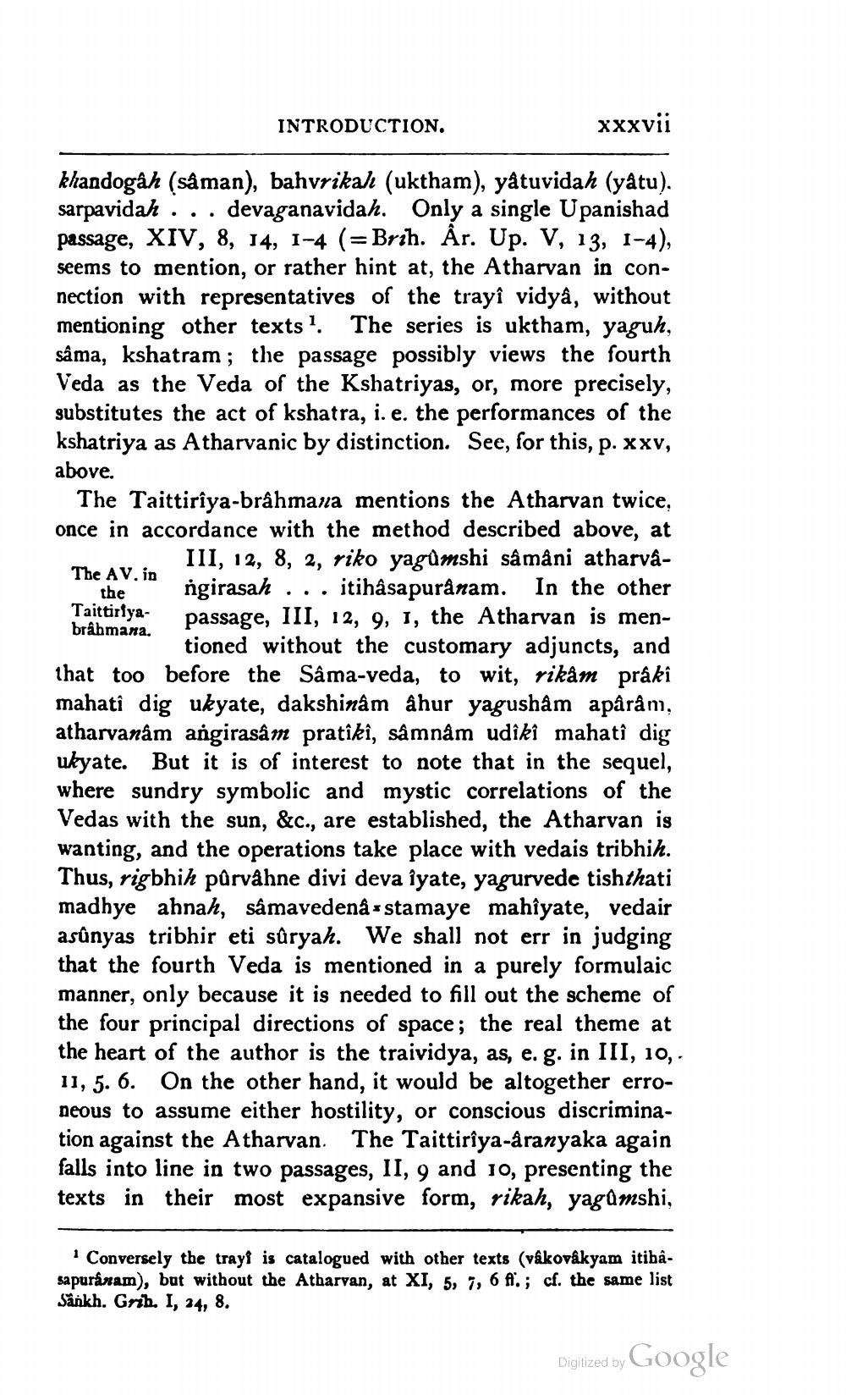________________
INTRODUCTION.
xxxvii
the
khandogâh (så man), bahvrikah (uktham), yâtuvidah (yatu). sarpavidah ... devaganavidah. Only a single Upanishad passage, XIV, 8, 14, 1-4 (=Brih. År. Up. V, 13, 1-4), seems to mention, or rather hint at, the Atharvan in connection with representatives of the trayî vidyâ, without mentioning other texts. The series is uktham, yaguh, sâma, kshatram; the passage possibly views the fourth Veda as the Veda of the Kshatriyas, or, more precisely, substitutes the act of kshatra, i.e. the performances of the kshatriya as Atharvanic by distinction. See, for this, p. xxv, above.
The Taittirîya-brâhmana mentions the Atharvan twice, once in accordance with the method described above, at
... III, 12, 8, 2, riko yagumshi sâmåni atharvaThe AV. in
ngirasah ... itihasapuranam. In the other Taittiriya- passage, III, 12, 9, 1, the Atharvan is menbrahmana.
tioned without the customary adjuncts, and that too before the Sâma-veda, to wit, rikåm prâkî mahatî dig ukyate, dakshinam ahur yagushâm apârâm, atharvanäm angirasâm pratîki, sâmnam udiki mahatî dig ukyate. But it is of interest to note that in the sequel, where sundry symbolic and mystic correlations of the Vedas with the sun, &c., are established, the Atharvan is wanting, and the operations take place with vedais tribhih. Thus, rigbhih pûrvåhne divi deva îyate, yagurvede tishthati madhye ahnah, sâmavedena s stamaye mahîyate, vedair asünyas tribhir eti sûryah. We shall not err in judging that the fourth Veda is mentioned in a purely formulaic manner, only because it is needed to fill out the scheme of the four principal directions of space; the real theme at the heart of the author is the traividya, as, e. g. in III, 10,11, 5. 6. On the other hand, it would be altogether erroneous to assume either hostility, or conscious discrimination against the Atharvan. The Taittirîya-aranyaka again falls into line in two passages, II, 9 and 10, presenting the texts in their most expansive form, rikah, yagamshi,
· Conversely the trayi is catalogued with other texts (vakovakyam itibâsapuranam), but without the Atharvan, at XI, 5, 7, 6 f.; cf. the same list Sänkh. Grib. I, 24, 8.
Digitized by Google




